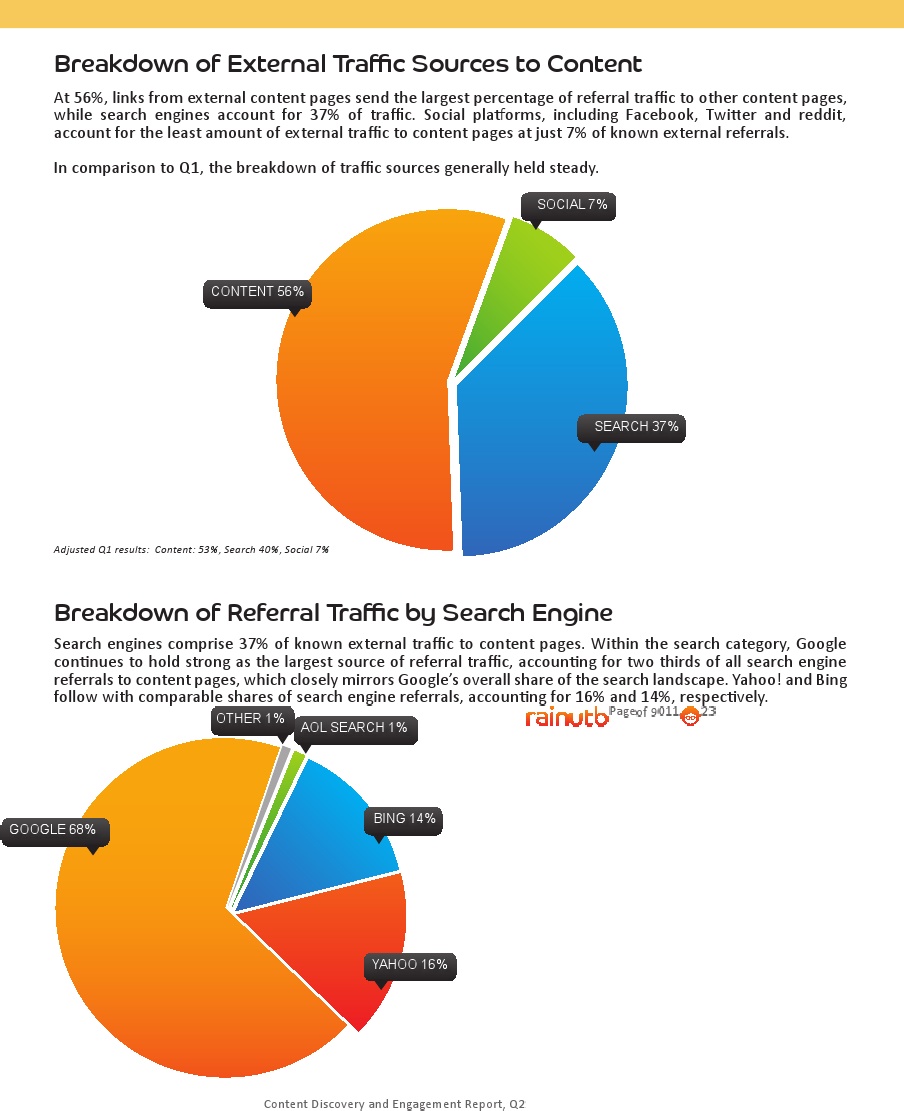A group called Outbrain did an analysis of recent traffic trends and say the same thing - on social media, people react to the title, they click the link and read less often. If you have a large Twitter or Facebook group, it's fine to get a lot of repeats of your posts, but you are getting little traffic, and if someone is paying for a social media marketing campaign, they are insane.
Overall, Facebook may drive nearly as much traffic as The Drudge Report, for example, but it is a million submissions to do it - if you get an article on The Drudge Report it will crash your server with the traffic and you will only notice traffic from Facebook if you are really looking. And many people look at linked Tweets as bordering on spam.

Are their numbers reliable for science? The results will look a little different. While our overall traffic from something like Reddit is quite low, your individual traffic if your article makes their front page is quite high. I have had people with 500,000 followers on Twitter post Science 2.0 articles and it is maybe 500 readers to the article but a solid article on Reddit will bring you 30,000 readers or more. On Twitter, though, if Ashton Kutcher tells a million followers to buy tequila, maybe that works; Reddit followers would make goat noises and hack his computer if he tried that over there.
Drudge Report does not link to non-corporate science sites so there is no hope of you getting there but social news sites without editors can help you get a new chunk of audience, it just takes patience and respecting the community (i.e. not showing up and spamming them with your stuff and expecting great results) in each individual place. It's a lot of work but the biggest names in science media either do it themselves or have marketing groups doing it for them.
Google is far and away the leader in driving traffic via search. Being on the Yahoo! front page might be Drudge levels of traffic but, like Drudge, they only use certain sites picked by editors and never independent media - what is achievable for an individual, Yahoo search, is almost nonexistent which means having a quality article that shows up in Google search is still the best way to go over the long haul.
NOTE:
(1) As in anything successful, those social news sites are heavily populated by marketing people for other science sites, so don't be discouraged if your submissions get clobbered. Over time, the audience will catch on to tricks. Stumbleupon is mostly valuable only once you get a decent group following you so dirty tricks by competitors will happen less there.





Comments